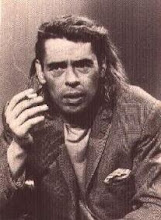So it was 1982 and the legendary Rolling Stones were playing some “intimate” British shows, work their way back into the British public’s affections ahead of a European stadium tour.
That meant appearing at venues such as the Capitol Theatre in Aberdeen, legendary Glasgow Apollo and newly refurbished Playhouse in Edinburgh, the latter accommodating over 3,000 punters.
By default I had befriended the seasoned manager of the Edinburgh venue, a wily old operator called Ted Way, a professional brought in to ensure the place was properly run after years of less than diligent stewardship.
The Edinburgh cognoscenti viewed Ted with suspicion, a London connected guy pioneering the balding grey mullet look, with the air of somebody who knew what he was doing.
As a comparatively young independent radio buck, I was regularly invited to his office to enjoy the A list acts for whom the Playhouse was one of the first venues penned on any tour itinerary.
Ted was to be late accused of improper practices in the way he ran the theatre, but hand on heart I never witnessed anything to support those accusations. Although he was prone to ask what you wanted to drink, and if you said a Becks German lager, four bottles would be opened and lined up in front of you.
He was an indominatable character whose proudest possession was an oil painting of The Stranglers, with him in the frame as the fifth member of the band. The indestructible Shetland fiddler Aly Bain was a regular dinner guest chez Ted, and you needed to be indestructible to survive at his table.
Getting an interview with Mick Jagger had become Radio Forth’s top priority, and therefore mine.
Ted called me and suggested I come over and interview the promoter Harvey Goldsmith, with a nod and a wink on arriving at his office. Nothing said, just a wave through to the back office where the man who would mastermind Live Aid sat casually at a desk.
Harvey was accommodating and friendly, but I was uncertain how this fitted into the “get Jagger” plan, or how I would explain it back at base. It was the means to an end, a concept alien then, but much clearer with hindsight.
On the day of the show I was drinking IPA in the magnificent Café Royal, drowning my embarrassment at the Jagger failure, and hoping that seeing the Stones in such an “intimate” setting would be some recompense.
Suddenly a breathless Tom Bell, then Radio Forth’s Head Of Music, burst through the swing doors in West Register Street. He was clutching tape machine and said that if I went that minute Mick would grant an audience backstage at the Playhouse.
There was no time to think about it. A whirl and there I was in a dressing room deserted but for the Stone’s singer and some blonde woman.
“Jerry, go and get us a couple of beers darling,” drawled the sexiest man alive.
Only later did I realise that Mick had just asked Jerry Hall to go and get this 24-year-old a Budweiser, which was not as common as piss back then. Still tasted like it though.
He was loquacious, warm and friendly, I was overawed, nervous and full of 5 pints of the Café Royal’s finest.
All appeared to go well. As it turns out, the most significant thing on the tape was the distant sound of Edinburgh’s TV21 playing their final gig, having landed the opening slot through their record company Decca. They of course released all the really good early Rolling Stones material. And turned down the Beatles.
Mick had in the words of David Byrne been talking a lot but not saying anything. Possibly I was mesmerised by those legendary lips and imagining where they had or hadn’t been, but there was nothing of substance in those 15 minutes, Then again the buzz phrase in commercial radio at the time was ‘it’s all about the sizzle not the sausage’.
This was all facilitated by Matt Donald, the Eighties EMI radio plugger and one of the funniest human beings to grace the planet.
I learned that getting the big name interview was not everything after all. Unless you are prepared to ask the tough questions and listen to the answers.
Tuesday, 10 March 2009
Subscribe to:
Post Comments (Atom)

No comments:
Post a Comment